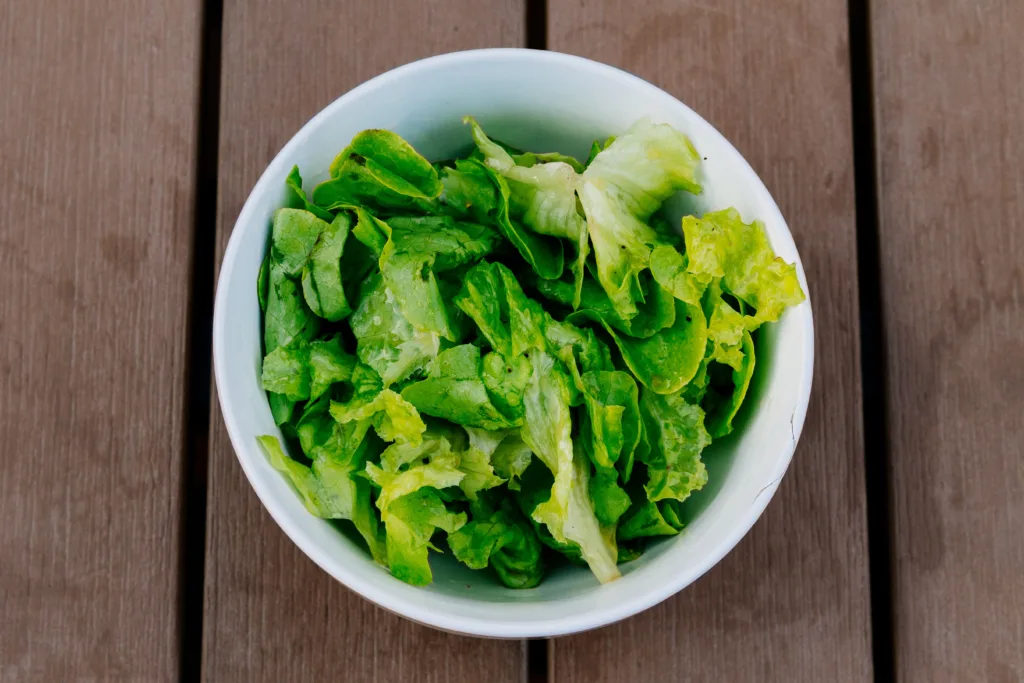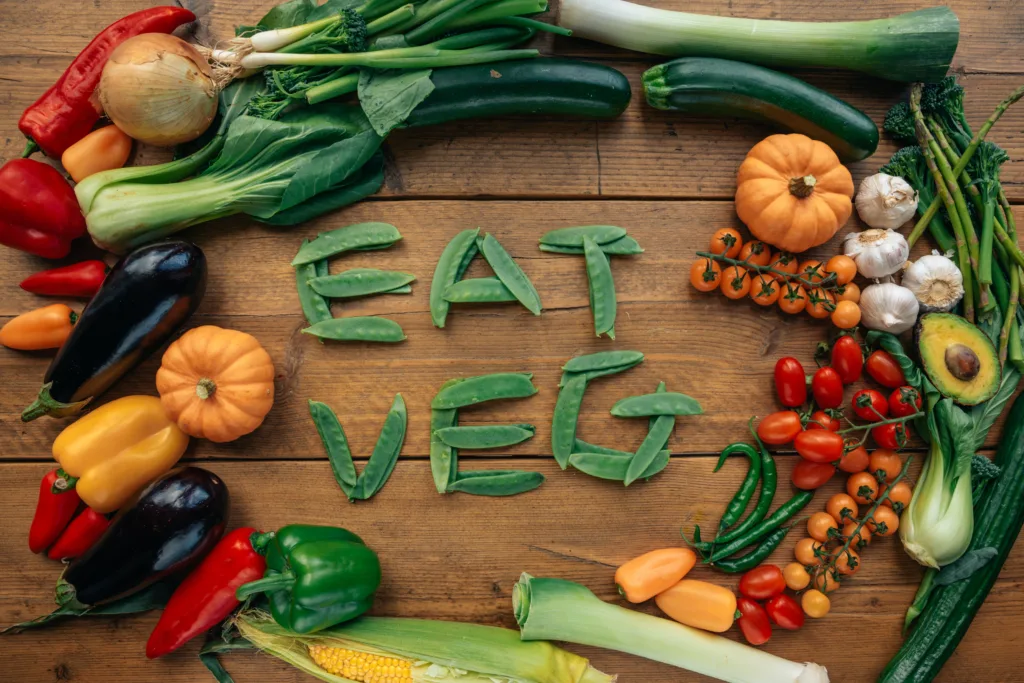Living a healthy lifestyle is essential for our overall well-being. Two key aspects of a healthy lifestyle are staying active and eating a vegetarian diet. In this article, we will explore the importance of an active lifestyle and the basics of a vegetarian diet. Furthermore, we will discuss how exercise and vegetarianism complement each other for optimal health. We will also address the challenges faced in maintaining an active, vegetarian lifestyle and provide practical tips to help you stay on track. So, let’s dive in and discover the secrets to staying active and eating vegetarian for a healthy life!
Understanding the Importance of an Active Lifestyle
In today’s sedentary world, it’s crucial to understand the significance of incorporating physical activity into our daily lives. An active lifestyle has numerous benefits, both physical and mental. Regular exercise improves cardiovascular health, strengthens muscles, and helps maintain a healthy weight. It also aids in reducing stress, boosting mood, and improving overall mental well-being.
Living an active lifestyle is not just about looking good; it’s about feeling good too. When we engage in physical activities, our bodies release endorphins, which are known as the “feel-good” hormones. These endorphins not only make us feel happier and more content but also help alleviate symptoms of anxiety and depression.
Moreover, an active lifestyle can improve our self-esteem and body image. When we take care of our bodies, we feel more confident and comfortable in our own skin. Regular exercise can help us achieve and maintain a healthy physique, leading to increased self-assurance and a positive body image.
The Role of Physical Activity in Health
Regular physical activity plays a vital role in preventing chronic diseases such as heart disease, diabetes, and certain types of cancer. It helps lower blood pressure, improves blood circulation, and enhances lung function. Engaging in physical activities also promotes better sleep, increases energy levels, and improves cognitive function.
When we exercise, our heart rate increases, and our blood vessels expand, allowing for better blood flow throughout the body. This improved circulation helps deliver oxygen and nutrients to our muscles and organs, keeping them healthy and functioning optimally. Additionally, regular physical activity can help lower cholesterol levels and reduce the risk of developing high blood pressure, thus protecting our cardiovascular health.
Exercise is also known to boost our immune system. When we engage in moderate-intensity physical activities, such as brisk walking or cycling, our body’s defense mechanisms become more efficient at fighting off infections and diseases. Regular exercise can help reduce the frequency and severity of common illnesses like the flu or colds.
How to Incorporate Exercise into Your Daily Routine
Integrating exercise into your daily routine doesn’t have to be complicated or time-consuming. Start by setting realistic goals and finding activities you enjoy. Whether it’s walking, jogging, swimming, or dancing, choose something that keeps you motivated. Aim for at least 150 minutes of moderate-intensity aerobic activity per week and incorporate strength training exercises twice a week. Remember, even small bursts of activity throughout the day can make a significant impact on your health.
There are many ways to incorporate exercise into your daily life. You can take the stairs instead of the elevator, park your car farther away from your destination to get some extra steps in, or take short breaks during work to stretch and move around. Additionally, you can join fitness classes or sports clubs to make exercise a social activity and meet like-minded individuals who share your fitness goals.
Remember, the key to maintaining an active lifestyle is consistency. Find ways to make exercise a habit rather than a chore. Set aside specific times each day or week for physical activity and make it a non-negotiable part of your routine. Soon enough, you’ll start experiencing the countless benefits of an active lifestyle and wonder why you didn’t start sooner.

The Basics of a Vegetarian Diet
Now that we understand the importance of staying active, let’s explore the fundamentals of a vegetarian diet. A vegetarian diet primarily focuses on plant-based foods, such as fruits, vegetables, whole grains, legumes, nuts, and seeds. It excludes meat, fish, and poultry; however, some variations of vegetarianism allow for the consumption of dairy and eggs.
When it comes to fruits and vegetables, the options are endless. From vibrant berries to leafy greens, these plant-based foods provide essential vitamins, minerals, and antioxidants that are vital for maintaining good health. Fruits like oranges and strawberries are packed with vitamin C, while vegetables like spinach and kale are rich in iron and calcium.
In addition to fruits and vegetables, whole grains play a crucial role in a vegetarian diet. Quinoa and brown rice are excellent sources of fiber and complex carbohydrates, which provide a steady release of energy throughout the day. These grains also contain essential minerals like magnesium and zinc, which are necessary for various bodily functions.
Legumes, including beans and lentils, are another staple in a vegetarian diet. These plant-based protein sources not only provide a satisfying and filling meal but also offer iron, magnesium, and other essential minerals. They are a great alternative to meat for those looking to increase their protein intake.
When it comes to healthy fats and protein, nuts and seeds are a vegetarian’s best friend. Almonds, walnuts, chia seeds, and flaxseeds are packed with omega-3 fatty acids, which are beneficial for heart health. They also provide protein and various micronutrients like vitamin E and magnesium.
If you choose to include dairy in your vegetarian diet, you can benefit from the calcium and vitamin D found in milk, yogurt, and cheese. These nutrients are essential for strong bones and teeth. Eggs, on the other hand, are an excellent source of protein and vitamin B12, which is primarily found in animal-based foods.
Nutritional Benefits of a Vegetarian Diet
Research has shown that a well-planned vegetarian diet can provide all the necessary nutrients for optimal health. Vegetarian diets tend to be lower in saturated fat and cholesterol and higher in fiber, antioxidants, and certain vitamins and minerals. This combination of nutrients has been linked to a reduced risk of obesity, heart disease, high blood pressure, and type 2 diabetes.
By focusing on plant-based foods, vegetarians naturally consume more fiber, which aids in digestion and helps maintain a healthy weight. The high antioxidant content of fruits and vegetables also helps protect the body against harmful free radicals, reducing the risk of chronic diseases.
Furthermore, a vegetarian diet can be beneficial for cardiovascular health. By avoiding meat and other animal products, vegetarians consume less saturated fat and cholesterol, which are known to contribute to heart disease. The abundance of fruits, vegetables, and whole grains in a vegetarian diet provides essential nutrients that support heart health, such as potassium and magnesium.
Additionally, the inclusion of legumes in a vegetarian diet offers numerous health benefits. Legumes are low in fat and high in fiber, making them an excellent choice for weight management. They also provide a good source of plant-based protein, which can help build and repair tissues in the body.
While a vegetarian diet offers many nutritional benefits, it’s crucial to pay attention to the quality and variety of foods consumed to ensure adequate intake of all essential nutrients. It’s important to incorporate a wide range of plant-based foods to ensure a diverse nutrient profile and to meet individual dietary needs.

Combining Exercise and a Vegetarian Diet for Optimal Health
Now that we’ve explored the importance of an active lifestyle and the basics of a vegetarian diet, let’s delve into how these two components work together for optimal health benefits.
When it comes to maintaining a healthy lifestyle, exercise and diet go hand in hand. Regular physical activity helps improve digestion and enhances nutrient absorption, maximizing the benefits of a vegetarian diet. By engaging in exercises such as walking, jogging, or cycling, you stimulate your digestive system, allowing it to function more efficiently. This increased efficiency means that your body can absorb essential nutrients from the vegetarian foods you consume more effectively.
Exercise not only aids in digestion but also increases metabolism, which can aid in weight management. When you combine an active lifestyle with a vegetarian diet, you create a powerful synergy. The combination of exercise and a plant-based diet can help you achieve and maintain a healthy weight. Whether your goal is to shed a few pounds or maintain your current weight, regular physical activity can make a significant difference.
In addition to weight management, physical activity supports muscle growth and maintenance. Contrary to the misconception that vegetarians lack protein, there are plenty of plant-based protein sources available. By incorporating exercises that target different muscle groups, such as strength training or yoga, you can ensure that you are building and maintaining lean muscle mass. This not only contributes to a healthy body composition but also provides numerous health benefits, including improved bone density and increased strength.
Case Studies: Success Stories of Active Vegetarians
There are numerous success stories of individuals who have embraced both an active lifestyle and a vegetarian diet. From professional athletes to everyday individuals, many people have thrived by combining these two elements. These success stories serve as a powerful motivation, proving that staying active and eating vegetarian can lead to improved physical performance, enhanced well-being, and longevity.
One such success story is that of Emma, a professional marathon runner. Emma adopted a vegetarian diet early in her running career and noticed a significant improvement in her endurance and recovery time. By fueling her body with plant-based protein sources like lentils, quinoa, and tofu, she found that her muscles recovered faster after intense training sessions, allowing her to push herself further in races. Emma’s story highlights how combining exercise and a vegetarian diet can optimize athletic performance.
Another inspiring example is Mark, an everyday individual who decided to switch to a vegetarian diet and incorporate regular exercise into his routine. Mark had struggled with weight management for years and was looking for a sustainable solution. By adopting a vegetarian diet and engaging in activities such as swimming and hiking, Mark not only lost the excess weight but also experienced a significant boost in his overall energy levels. He found that he could enjoy a wide variety of delicious vegetarian meals while still achieving his health goals.
These success stories, along with many others, demonstrate that the combination of exercise and a vegetarian diet can have a profound impact on overall health and well-being. Whether you’re an athlete aiming for peak performance or an individual looking to improve your overall health, incorporating both exercise and a vegetarian diet into your lifestyle can lead to remarkable results.

Overcoming Challenges in Maintaining an Active, Vegetarian Lifestyle
While the benefits of an active, vegetarian lifestyle are undeniable, it’s essential to address and overcome the challenges that may arise along the way.
Embracing an active, vegetarian lifestyle comes with its fair share of obstacles, but with a little determination and planning, these challenges can be overcome. In this expanded version, we will delve deeper into two key challenges: dealing with social and cultural barriers, and ensuring nutritional adequacy.
Dealing with Social and Cultural Barriers
Social situations and cultural traditions can sometimes present challenges for those following a vegetarian lifestyle. It can be disheartening to attend gatherings where vegetarian options are limited or nonexistent. However, with proper planning and communication, these challenges can be overcome.
One way to navigate social barriers is to educate your friends and family about your dietary choices. By explaining the reasons behind your decision to adopt a vegetarian lifestyle, you can foster understanding and support. It’s important to emphasize that being vegetarian doesn’t mean missing out on delicious and satisfying meals. Share some of your favorite vegetarian recipes or invite loved ones to try a vegetarian restaurant with you.
When it comes to cultural traditions, it’s crucial to find a balance between honoring your heritage and staying true to your values. Research traditional vegetarian dishes from your culture or explore vegetarian adaptations of classic recipes. By showcasing the rich variety of vegetarian options available, you can participate in cultural traditions without compromising your dietary choices.
Another effective strategy is to be open to finding compromise solutions that allow you to stay true to your values while participating in social events. Talk to the host or organizer beforehand and offer to bring a vegetarian dish to share. This not only ensures that you have something to eat but also introduces others to the delicious world of vegetarian cuisine.
Ensuring Nutritional Adequacy
Nutritional adequacy is a key concern for many individuals considering or following a vegetarian diet. It’s essential to be well-informed about the necessary nutrients and ensure you incorporate a wide variety of foods into your meals.
One of the main concerns for vegetarians is obtaining sufficient protein. While commonly associated with animal products, protein can be obtained from various plant-based sources such as legumes, tofu, tempeh, seitan, and quinoa. By including a variety of these protein-rich foods in your diet, you can meet your protein needs.
Another vital nutrient for vegetarians to pay attention to is iron. Plant-based sources of iron include spinach, lentils, chickpeas, and fortified cereals. To enhance iron absorption, pair these foods with vitamin C-rich sources like citrus fruits or bell peppers.
Omega-3 fatty acids, primarily found in fish, are essential for overall health. However, vegetarians can obtain these fatty acids from plant-based sources such as flaxseeds, chia seeds, walnuts, and hemp seeds. Including these foods in your diet can help ensure you meet your omega-3 fatty acid requirements.
Consulting a registered dietitian or nutritionist can provide personalized guidance to meet your nutritional needs. They can assess your current diet, identify any potential nutrient deficiencies, and suggest appropriate dietary modifications or supplements if necessary. Working with a professional can give you peace of mind and ensure you are meeting all your nutritional requirements.
In conclusion, maintaining an active, vegetarian lifestyle may present challenges, but with proper planning, education, and support, these challenges can be overcome. By addressing social and cultural barriers and ensuring nutritional adequacy, you can thrive in your vegetarian journey while reaping the numerous benefits it offers.

Practical Tips for Staying Active and Eating Vegetarian
Now that we’ve covered the different aspects of staying active and eating vegetarian, let’s explore some practical tips to help you maintain a healthy and fulfilling lifestyle.
Easy Vegetarian Recipes for Active Individuals
Cooking delicious vegetarian meals doesn’t have to be complicated. Look for quick and easy recipes that provide balanced nutrition and suit your active lifestyle. Incorporate plenty of fresh vegetables, whole grains, and plant-based protein sources into your meals. Experiment with different spices and flavors to keep your taste buds satisfied.
If you’re a fan of Mexican cuisine, try making vegetarian fajitas with marinated tofu or tempeh. Sauté colorful bell peppers, onions, and mushrooms, and add your choice of protein. Season with a blend of spices like cumin, paprika, and chili powder for a burst of flavor. Serve with warm tortillas, guacamole, and salsa for a satisfying and nutritious meal.
For a quick and energizing breakfast, whip up a smoothie bowl packed with nutrients. Blend frozen fruits like berries and bananas with plant-based milk and a spoonful of nut butter. Pour the creamy mixture into a bowl and top with granola, chia seeds, and fresh fruits. This refreshing and filling breakfast will fuel you for an active day ahead.
Fun and Effective Workouts for All Fitness Levels
Exercise doesn’t have to be boring or monotonous. Find physical activities that bring you joy and make you excited to move your body. Whether it’s hiking, dancing, cycling, or practicing yoga, choose activities that align with your preferences and fitness levels. Mixing up your workouts and trying new exercises can help prevent boredom and keep you motivated.
If you enjoy being in nature, hiking is a fantastic way to stay active and connect with the outdoors. Find local trails that offer scenic views and varying levels of difficulty. Grab a friend or join a hiking group to make the experience even more enjoyable. Remember to wear appropriate footwear and carry essentials like water, snacks, and a map.
If you’re looking for a high-energy workout that combines cardio and strength training, consider trying a dance fitness class. Dance workouts are not only fun but also help improve coordination, flexibility, and cardiovascular endurance. Whether it’s Zumba, hip hop, or salsa, you’ll be grooving to the beat while burning calories and toning your muscles.
By implementing these practical tips and maintaining a balanced approach, you can effortlessly integrate an active lifestyle and a vegetarian diet into your daily routine. Remember, health is a lifelong journey, and creating sustainable habits is key. So, start embracing the benefits of staying active and eating vegetarian today, and unlock a healthier, happier, and more vibrant you!
When it comes to staying active and eating vegetarian, it’s important to listen to your body and make adjustments as needed. Pay attention to how different foods and exercises make you feel. If you notice any discomfort or lack of energy, consider consulting with a healthcare professional or registered dietitian who can provide personalized guidance.
Additionally, don’t forget to stay hydrated throughout the day. Drinking an adequate amount of water is essential for overall health and can support your active lifestyle. Keep a reusable water bottle with you at all times and aim to drink at least eight glasses of water each day.
Lastly, remember to practice self-care and prioritize rest and recovery. Getting enough sleep is crucial for your body to repair and recharge. Make sure to allocate time for relaxation, whether it’s through meditation, reading, or engaging in hobbies that bring you joy. Taking care of your mental and emotional well-being is just as important as physical fitness.
Thank you for reading this post, don't forget to subscribe to our free newsletter
!
